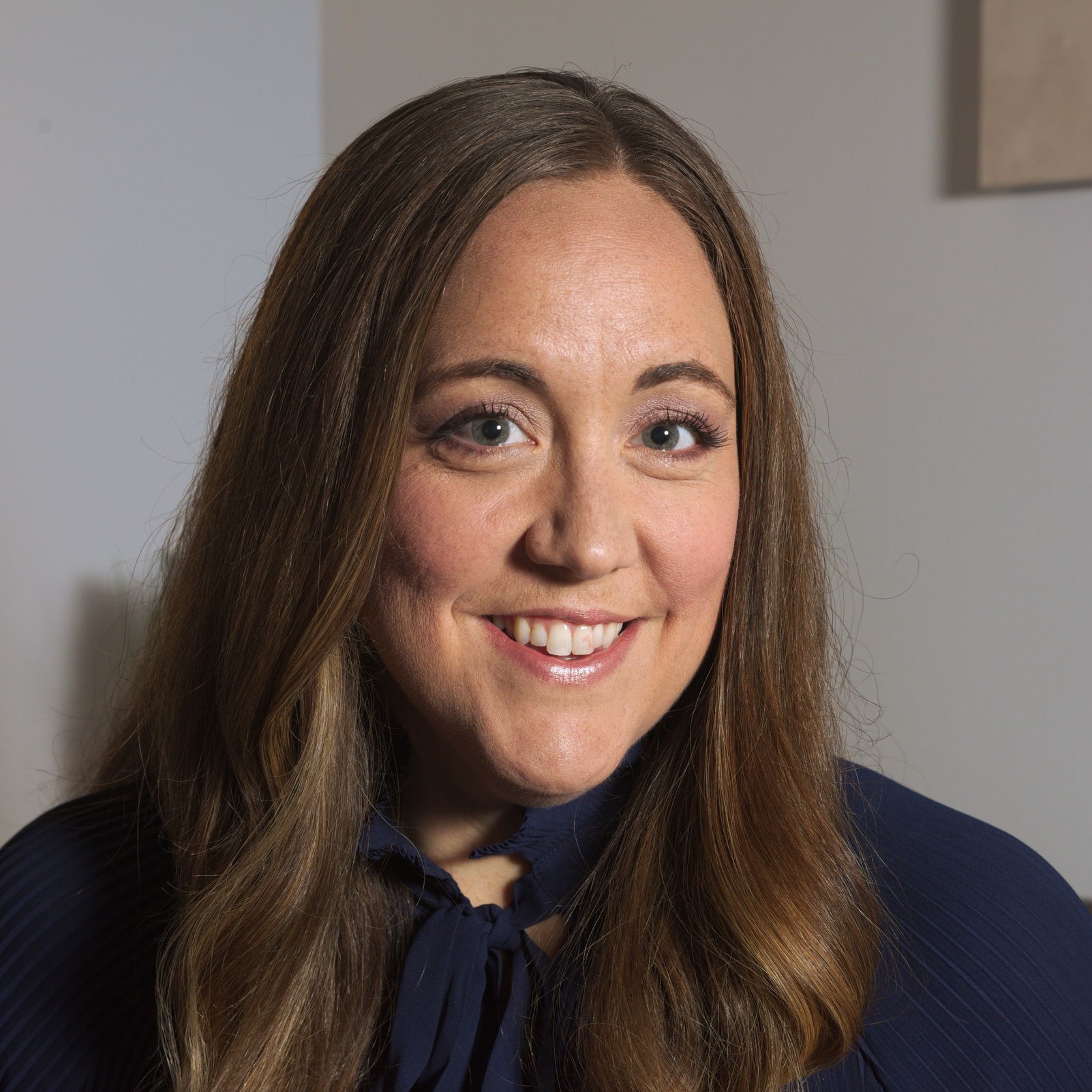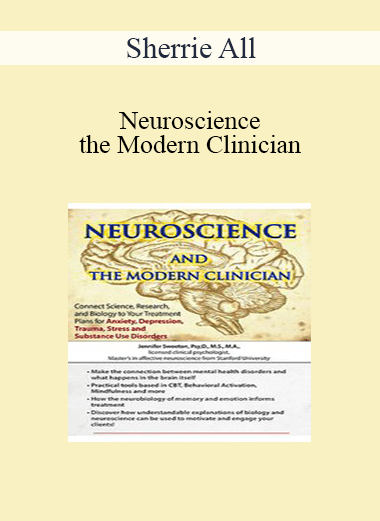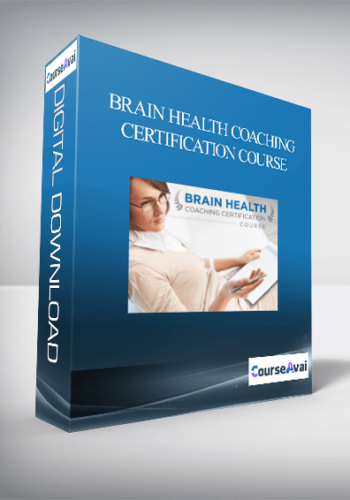Sherrie All – Neuroscience and the Modern Clinician: Connect Science, Research, and Biology to Your Treatment Plans for Anxiety
Original price was: $219.99.$36.90Current price is: $36.90.
[Instant Download] – Immediately deliver the download link after receiving the payment
Description
Unlock your potential with the Unlock your potential with the Sherrie All – Neuroscience and the Modern Clinician: Connect Science, Research, and Biology to Your Treatment Plans for AnxietySherrie All – Neuroscience and the Modern Clinician: Connect Science, Research, and Biology to Your Treatment Plans for Anxiety course for only course for only Original price was: $219.99.Original price was: $219.99.$$36.9036.90Current price is: $36.90.Current price is: $36.90. at at Giolib.comGiolib.com! Explore our comprehensive library of over 60,000 downloadable digital courses across various ! Explore our comprehensive library of over 60,000 downloadable digital courses across various Medical & HealthMedical & Health. Get expert-led, self-paced learning at up to 80% savings. Elevate your skills today!. Get expert-led, self-paced learning at up to 80% savings. Elevate your skills today!
- Faculty:Faculty:
- Sherrie AllSherrie All
- Duration:Duration:
- 6 Hours 11 Minutes6 Hours 11 Minutes
- Format:Format:
- Audio and VideoAudio and Video
- Copyright:Copyright:
- Sep 07, 2018Sep 07, 2018
Description
| Manual – Neuroscience and the Modern Clinician (3.33 MB) Manual – Neuroscience and the Modern Clinician (3.33 MB) | 68 Pages68 Pages | Available after Purchase Available after Purchase |
Outline
How Neuroscience Can Enhance Therapy:How Neuroscience Can Enhance Therapy:
What (and Why) Clinicians Need to Know About the Nervous SystemWhat (and Why) Clinicians Need to Know About the Nervous System
- Brain basics – structure and function
Brain basics – structure and function
- 12 structures you need to know12 structures you need to know
- How the brain organizesHow the brain organizes
- Key pathways involved in common disorders
Key pathways involved in common disorders
- Pain pathwayPain pathway
- Reward pathwayReward pathway
- Fear-stress pathwayFear-stress pathway
- Default Mode and Task Mode NetworksDefault Mode and Task Mode Networks
- Impact of relationships on our nervous system
Impact of relationships on our nervous system
- Mirror neuronsMirror neurons
- OxytocinOxytocin
- Simple explanations and 3-D brain model for clientsSimple explanations and 3-D brain model for clients
- How neurobiology can help you to determine treatment methods and set goalsHow neurobiology can help you to determine treatment methods and set goals
- ”Our brains” and objectivity in therapy”Our brains” and objectivity in therapy
- Limitations of “brain-based” approachesLimitations of “brain-based” approaches
Neuroplasticity and the Potential for ChangeNeuroplasticity and the Potential for Change
- Hype vs. the “two-way” street of brain plasticityHype vs. the “two-way” street of brain plasticity
- Physical vs. functional change – structural or at the synapsePhysical vs. functional change – structural or at the synapse
- The strength of connectionsThe strength of connections
- Timeframes for changeTimeframes for change
- How neuroplasticity can help you foster change
How neuroplasticity can help you foster change
- Explaining neuroplasticity to clientsExplaining neuroplasticity to clients
Treatment Strategies and Interventions for Common Disorders Treatment Strategies and Interventions for Common Disorders (And the Neuroscience Behind Them) (And the Neuroscience Behind Them)
AnxietyAnxiety
- The neural bases of threat processingThe neural bases of threat processing
- Key CBT concepts and techniquesKey CBT concepts and techniques
- Combining cognitive work with:
Combining cognitive work with:
- Mindful awareness of emotionsMindful awareness of emotions
- Get physical – how using the body can ease anxiety symptomsGet physical – how using the body can ease anxiety symptoms
- Breathing exercises and relaxation trainingBreathing exercises and relaxation training
Depression Depression
- The depressed brain – structural and functionalThe depressed brain – structural and functional
- The neural interrelationships of depression and anxietyThe neural interrelationships of depression and anxiety
- Behavioral activation – get active!Behavioral activation – get active!
- Mindfulness as an adjunctive approachMindfulness as an adjunctive approach
- Compassion, gratitude and depressive symptomsCompassion, gratitude and depressive symptoms
TraumaTrauma
- Malleability of memory: implications for trauma treatmentMalleability of memory: implications for trauma treatment
- How childhood trauma changes the developmental trajectory of the brainHow childhood trauma changes the developmental trajectory of the brain
- Polyvagal Theory, trauma and the body – the researchPolyvagal Theory, trauma and the body – the research
- Imagery techniques – imaginal exposureImagery techniques – imaginal exposure
- Grounding and interoceptionGrounding and interoception
StressStress
- How stress impacts the nervous systemHow stress impacts the nervous system
- The adverse effects of long-term stress exposureThe adverse effects of long-term stress exposure
- The role of the stress/fear pathwayThe role of the stress/fear pathway
- CBT-based coping skills for stressful situationsCBT-based coping skills for stressful situations
Substance Use DisordersSubstance Use Disorders
- Brain areas involved in addictionBrain areas involved in addiction
- Pleasure and pain pathwaysPleasure and pain pathways
- Prefrontal connections and judgementPrefrontal connections and judgement
- How addiction can change the brainHow addiction can change the brain
- Motivational InterviewingMotivational Interviewing
- Contingency managementContingency management
The Limitations of Neuroscientific Research and Potential Treatment RisksThe Limitations of Neuroscientific Research and Potential Treatment Risks
- fMRI imaging – blood flow vs. neuronal activityfMRI imaging – blood flow vs. neuronal activity
- How only looking at brain activations produces an incomplete pictureHow only looking at brain activations produces an incomplete picture
- Neuroscientific studies, sample size, and validityNeuroscientific studies, sample size, and validity
- Animal research – directly applicable to humans?Animal research – directly applicable to humans?
- Psychotherapeutic techniques – specific limitations and risksPsychotherapeutic techniques – specific limitations and risks
Faculty

Sherrie All, Ph.D. Related seminars and products: 5
Chicago Center for Cognitive Wellness
Sherrie All, PhD.,Sherrie All, PhD., is a Licensed Clinical Psychologist specializing in neuropsychology, cognitive rehabilitation and brain health. She owns and directs the Chicago Center for Cognitive Wellness (CCCW), a group neuropsychology practice offering assessment and treatment services in cognitive rehabilitation and psychotherapy to people affected by cognitive decline. As a leader in the field of brain health, Dr. All works to educate the public on brain-healthy behaviors and innovating brain health coaching. Her work in this area earned her the 2010 Sharpbrains Innovation Award for Most Innovative Mental Health Program as well as the attention of media outlets such as is a Licensed Clinical Psychologist specializing in neuropsychology, cognitive rehabilitation and brain health. She owns and directs the Chicago Center for Cognitive Wellness (CCCW), a group neuropsychology practice offering assessment and treatment services in cognitive rehabilitation and psychotherapy to people affected by cognitive decline. As a leader in the field of brain health, Dr. All works to educate the public on brain-healthy behaviors and innovating brain health coaching. Her work in this area earned her the 2010 Sharpbrains Innovation Award for Most Innovative Mental Health Program as well as the attention of media outlets such as The New YorkerThe New Yorker and and Crain’s Chicago Business.Crain’s Chicago Business.
Dr. All trains other professionals in how to implement cognitive rehabilitation interventions into their practice, through continuing education programs, supervision and individual consultations. She shares her detailed understanding of the brain and brain-behavior relationships in an engaging and relatable way. Dr. All’s forthcoming book and current keynote address, Dr. All trains other professionals in how to implement cognitive rehabilitation interventions into their practice, through continuing education programs, supervision and individual consultations. She shares her detailed understanding of the brain and brain-behavior relationships in an engaging and relatable way. Dr. All’s forthcoming book and current keynote address, “Brain Destiny: Everyday Choices to Lower Your Risk for Dementia and Change Your Life”,“Brain Destiny: Everyday Choices to Lower Your Risk for Dementia and Change Your Life”, offers an entertaining way of promoting a popular understanding of the scientific theory of cognitive reserve to empower people to effectively care for their brains. She has been an invited speaker by the Lifetime Education and Renewal Network (LEARN) of the American Society on Aging (ASA) and speaks regularly on the topics of brain health, cognitive rehabilitation and interventions for early-stage dementia. Dr. All’s research includes examination of functional MRI (fMRI) and electrophysiological (EEG) biomarkers of cognitive deficits. offers an entertaining way of promoting a popular understanding of the scientific theory of cognitive reserve to empower people to effectively care for their brains. She has been an invited speaker by the Lifetime Education and Renewal Network (LEARN) of the American Society on Aging (ASA) and speaks regularly on the topics of brain health, cognitive rehabilitation and interventions for early-stage dementia. Dr. All’s research includes examination of functional MRI (fMRI) and electrophysiological (EEG) biomarkers of cognitive deficits.
Speaker Disclosures:Speaker Disclosures:
Financial: Sherrie All is the owner of the Chicago Center for Cognitive Wellness. She receives a speaking honorarium from PESI, Inc.Financial: Sherrie All is the owner of the Chicago Center for Cognitive Wellness. She receives a speaking honorarium from PESI, Inc.
Non-financial: Sherrie All has no relevant non-financial relationship to disclose.Non-financial: Sherrie All has no relevant non-financial relationship to disclose.
Future-proof your knowledge with the Future-proof your knowledge with the Sherrie All – Neuroscience and the Modern Clinician: Connect Science, Research, and Biology to Your Treatment Plans for AnxietySherrie All – Neuroscience and the Modern Clinician: Connect Science, Research, and Biology to Your Treatment Plans for Anxiety course at course at GiOlibGiOlib! Enjoy lifetime access to high-quality digital content, crafted to advance your career and personal development.! Enjoy lifetime access to high-quality digital content, crafted to advance your career and personal development.
- Lifetime Access:Lifetime Access: Permanent access to all purchased courses. Permanent access to all purchased courses.
- Smart Savings:Smart Savings: Benefit from prices up to 80% off original course costs. Benefit from prices up to 80% off original course costs.
- Safe Transactions:Safe Transactions: Process your payments securely. Process your payments securely.
- Practical Insights:Practical Insights: Gain actionable skills relevant to today's demands. Gain actionable skills relevant to today's demands.
- Instant Availability:Instant Availability: Begin your course immediately after payment. Begin your course immediately after payment.
- Flexible Learning:Flexible Learning: Access content effortlessly on any device. Access content effortlessly on any device.
Start expanding your horizons with Start expanding your horizons with GiOlibGiOlib!!





